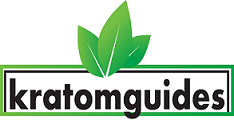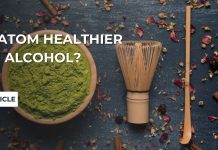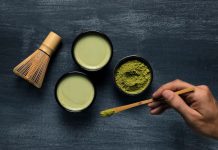The Indonesian health authority has announced to ban kratom for both farming and exporting from the year 2024 so that the farmers get enough time to transition to other crops. This ban can impact the United States in a lot of ways since Indonesia is one of the primary sources of kratom.
Why was this ban decided, and how will the market react to this?
Indonesia’s National Agency of Drug and Food Control suggested a ban on the growing and export of kratom, which is unwelcome news for the American market since Indonesian kratom is a primary type of the natural supplement that is used by millions of people.
The kratom lovers in America are unhappy — not only because the kratom might not be available in their market but also because the US FDA is responsible for pushing the Indonesian health authority to discontinue a smooth and regular supply.
The unreasonable side of the ban
Indonesia is a prime cultivator of kratom and contributes a large part of the kratom industry in the United States. The Indonesian authority announces the ban for drug and food control, but what makes it sound unreasonable?
The Indonesian province of Kalimantan is the primary source of kratom, and every year the export sizes up to almost 400-500 tons a month. This bulky export contributes significantly to the Indonesian economy, employing a lot of people in the region and uplifting the living standards for them.
Secondly, since the majority of Indonesian people are Muslims, they do not wish to use the kratom plant, based on the incessant debate that it may or may not be prohibited by their religion.
Therefore, all the kratom growing in Indonesia is of export value and generates money for the country.
The amount of kratom exported may have dropped after 2017, when the American market witnessed the Salmonella outbreak.
However, the reason for the ban, despite its profitability is something the farmers can never understand.
On the other hand, the FDA is not commenting on the ban, which makes it possible for users to believe that the natural supplement is in fact, banned for the American FDA and not Indonesia!
Shortly after this announcement of kratom ban, the American Kratom Association urged kratom users to donate so that kratom could be kept legal.
The association expressed the view that the FDA behind this ban. The FDA denied this allegation, but users prefer to believe it.
Indonesia and the global market
The ban on Indonesian kratom affects the U.S market the most. There is little demand for kratom in Asia, as many countries grow it, and there are many where it has not penetrated the alternative medicine market. The main areas of export for kratom from Indonesia are the United States and Europe.
The Kalimantan kratom has a very soothing and stimulating impact and has replaced third-degree opiates for millions of users.
The FDA does not recognize the natural supplement, but all over the world, people welcome alternate medicines only to avoid the side effects of heavy pharmaceutical medications.
The kratom industry of Indonesia is a significant portion of the country’s export, and 90 percent of it goes to the U.S.
Why is kratom a wanted commodity?
Kratom is a plant which is used as dried, crushed leaves to reduce pain and anxiety. The dried leaves are powdered to use in capsules or wash down with water, but it can be used to make kratom tea as well.
This supplement is used to combat all health issues that cause pain.
Kratom is an excellent painkiller and does not have the side effects that pharmaceutical medicines have! This is enough reason for people to switch to kratom from heavy-duty medication.
Moreover, kratom stimulates the nerves and senses, so the user feels more in control of their lives. It fights depression and anxiety, making users feel more confident and happy.
Kratom has helped millions of people with serious issues such as chronic pain and now their recommendations and experiences matter significantly in the promotion of kratom as a magic pill!
The FDA issue
The FDA claims that kratom is not a safe or effective treatment for pain since it can become an addiction for users. In 2017, there was a national opioid overdose crisis, due to which the FDA believes that another opioid drug in the market may be dangerous.
Users may argue with this claim, but the authority has not recognized kratom as a medicine. Several users vouch for the natural supplement.
They also believe that the FDA does not want to let kratom into the regular pharmaceutical industry due to its miraculous impact on pain, anxiety, and several other health issues.
Pharmaceutical giants in the United States have a huge clientele due to the third-degree opiates they sell. If Kratom becomes a known and recognized drug, all these pharmaceuticals will be in hot waters for nothing! This reason is enough to keep kratom isolated.
In 2019, all the states allow purchase, sale, and possession of kratom, except Alabama, Arkansas, Rhode Islands, Vermont, and Wisconsin.
The primary reason that the DEA had to allow kratom consumption was the people who protested against the ban. Users who have been able to improve their lives with the botanical supplement strongly condemned the impositions and wanted the authorities to allow it so they could benefit from the plant.
The Indonesian economy and the kratom ban
The kratom ban, as we discussed above, is not a feasible move for Indonesia, as it is one of their biggest exports. The Kalimantan province has numerous kratom farmers who are more than happy with their jobs. Even if the growing of kratom continues and the ban is only for the U.S, the Southeast Asian country will drastically suffer due to the export to the U.S. being a whopping 90 percent of the kratom export.
Despite this downside of the ban, the Indonesian health authority has no comments to share with the media and pressing questions about the impact it may have on the revenue raised through the sale of this natural supplement to the United States.
The American Kratom Association visited Indonesia to speak with the concerned authorities about the ban, but they did not receive any concrete answer as to when the ban will be implemented.
The delegation included lawmakers, policy experts, scientists, and users. The Indonesian officials believe that even if the health authority wanted the ban, the trade ministers would be against it. Kratom is a big revenue earner for the country, and banning it would mean a reduction in export.
The ambiguity regarding kratom is not a new thing since several bans were planned but could not be imposed in the United States in the past few years. The FDA and DEA had to take back the kratom ban to keep users from protesting against it.
The AKA is determined to speak with Indonesian officials again so that the ban can be cancelled. This will benefit a lot of farmers employed in the kratom farming industry, while the country also earns millions of American Dollars each year for the exports.
The reaction of the Indonesian trade ministry, entrepreneurs and deputy chairperson
The Minister for trade in Indonesia expressed his anger and clearly mentioned that the kratom ban will impact the country adversely.
Many entrepreneurs requested the Government to postpone or delay the Kratom ban.
Daniel Johan, the deputy chairperson of the Indonesian House of Representative expressed his concern over the Kratom ban. According to him, the ban will end the deep research on this natural herb and throwing away the nation asset will push us to enter the world of health mafia war.








Kratom helps many in chronic pain. This is sad. The article left out Indiana from list of states that banned kratom. It is among most backward states in the nation.